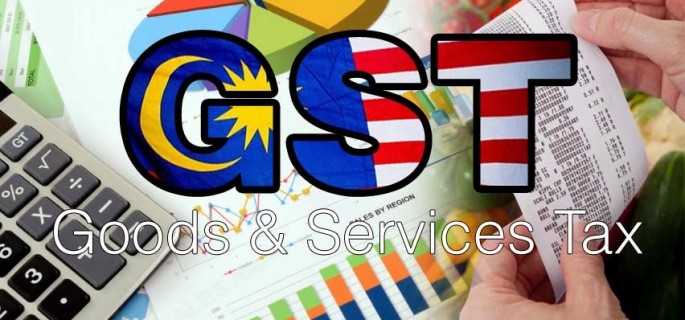Comprehending the Benefits of Singapore GST Registration for SMEs
Comprehending the Benefits of Singapore GST Registration for SMEs
Blog Article
The Ultimate Overview to Streamlining the GST Registration Process and Demands for Local Business Owners

Understanding GST Basics
To realize the fundamentals of the Item and Provider Tax Obligation (GST) system, little company owners have to initially comprehend its underlying principles and implications. GST is a value-added tax levied on most items and solutions for residential consumption. It aims to streamline the taxes process by replacing numerous indirect taxes imposed by the state and main federal governments. Under the GST regime, services are called for to collect and register tax in support of the federal government, making sure transparency and compliance.
One of the vital principles of GST is input tax obligation credit history, which permits companies to assert credit score for taxes paid on their acquisitions. This device avoids the plunging effect of taxes and advertises efficiency in the tax system. In addition, GST is a destination-based tax, implying that the tax obligation is imposed at the point of usage as opposed to the point of origin. This makes certain reasonable distribution of tax obligation revenue among states based on where the products or solutions are taken in. Understanding these fundamental concepts is critical for small service proprietors to browse the complexities of the GST system and guarantee conformity with the regulation.
Eligibility Criteria for Registration
Having developed a fundamental understanding of GST concepts, tiny organization proprietors need to currently satisfy certain eligibility criteria to wage the enrollment procedure. In India, entities participated in the supply of products or services with an annual accumulation turn over going beyond Rs. 40 lakhs (Rs. 10 lakhs for unique category states) are called for to sign up for GST. Furthermore, certain services such as those involved in inter-state supply of items, informal taxable individuals, and those needed to pay tax under the reverse cost device need to register for GST regardless of their turn over. Moreover, companies that were signed up under the previous tax obligation program (VAT, solution tax, and so on) are likewise mandated to register under GST. Nevertheless, farming services that only provide create out of primary manufacturing are exempt from GST enrollment. It is essential for business proprietors to very carefully assess their qualification based on these requirements to guarantee conformity with the law and stay clear of any type of fines for non-compliance.
Files Required for GST Enrollment

Simplified Enrollment Refine Actions
Adhering to the collection and confirmation of the requisite papers, the registration procedure for GST can be browsed through a collection of streamlined steps made to assist in effective conformity for small company owners. The very first step entails going to the GST portal and choosing the 'New Registration' choice. Subsequently, the candidate must complete Part A of the GST REG-01 type with information such as PAN, mobile number, and e-mail address to obtain an OTP for confirmation. Once the OTP is received and entered, a Temporary Referral Continued Number (TRN) is created for additional procedures. The next action needs filling up out Part B of the kind with required company information, uploading supporting documents, and completing the confirmation procedure using DSC or EVC. Upon successful verification, an Application Recommendation Number (ARN) is released, showing the completion of the GST registration process. By adhering to these streamlined actions, local business proprietors can effectively register for GST and guarantee conformity with tax obligation laws.
Tips for Ensuring Compliance
To keep governing adherence and functional stability, persistent oversight and proactive important link actions are crucial in ensuring conformity with GST demands for local business owners. Local business owners have to remain updated with GST laws, submitting deadlines, and any kind of modifications in tax prices to prevent penalties and preserve a great standing with tax authorities. One crucial pointer for compliance is to maintain in-depth and accurate documents of all deals, consisting of invoices, expenditures, and receipts connected to GST. Consistently fixing up economic records with GST returns can assist in recognizing and correcting any kind of inconsistencies without delay. Additionally, carrying out routine internal audits or looking for professional assistance can guarantee that the company is complying with all GST guidelines correctly. It is also important for tiny organization proprietors to buy GST-compliant accounting software application that can simplify the tax obligation filing process and reduce mistakes. Last but not least, attending GST awareness workshops or training programs can improve understanding and conformity with GST guidelines, inevitably profiting business over time.
Verdict
To conclude, tiny service owners must recognize the fundamentals of GST, meet the eligibility standards, gather necessary records, and adhere to the simplified registration procedure steps to ensure conformity. By simplifying the GST registration procedure and demands, local business owners can avoid fines and operate their businesses efficiently within the legal structure - Singapore GST Registration. It is vital for local business proprietors to see here stay compliant and enlightened with GST policies to keep a successful business procedure
Small business proprietors seeking GST enrollment should ensure they gather and send the needed documents to complete the enrollment process effectively. The documents needed for GST enrollment usually consist of proof of organization registration or consolidation, FRYING PAN (Permanent Account Number) card of the service address, identity and entity evidence of the promoters/partners/directors, photographs, address proof of the location of organization, bank account declarations or canceled cheques, and authorization forms. Going to GST understanding workshops or training programs can boost understanding and compliance with GST regulations, inevitably benefiting the company in the lengthy run.
By simplifying the GST enrollment process and requirements, little business proprietors can avoid penalties and operate their services efficiently within the lawful structure. It is crucial for small company proprietors to remain certified and enlightened with GST regulations to maintain a successful service procedure.
Report this page